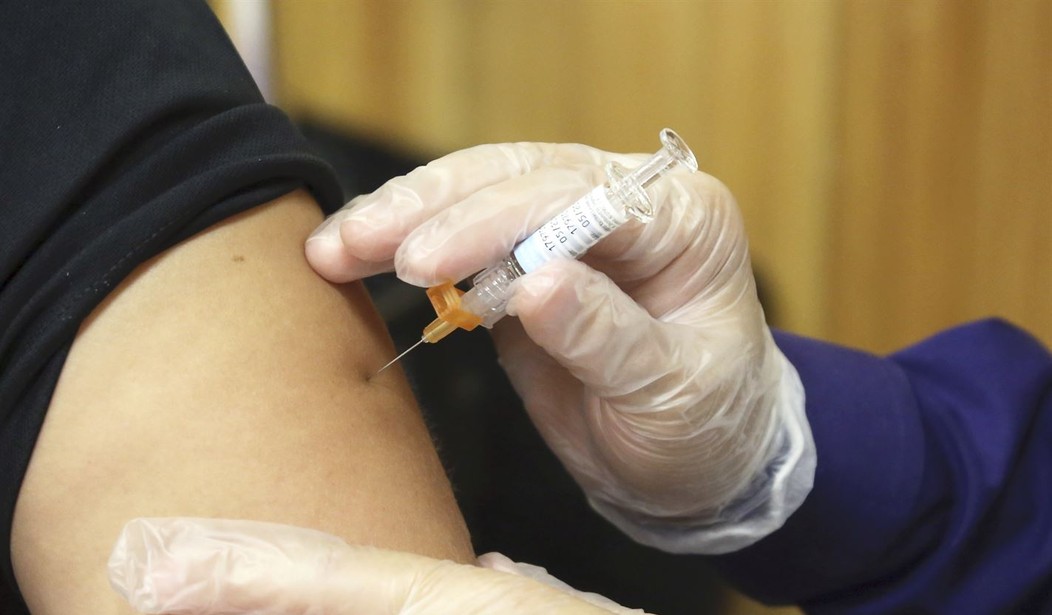Some researchers are theorizing, based on an understanding of immune system responses, that vaccines currently available should help prevent some of the most severe illnesses caused by COVID-19. The American Society for Microbiology published the first information on it in Science Daily. According to the post:
Administering the MMR (measles, mumps, rubella) vaccine could serve as a preventive measure to dampen septic inflammation associated with COVID-19 infection, say a team of experts in this week’s mBio, a journal of the American Society for Microbiology.
Attenuated Virus Vaccines
MMR vaccines are comprised of attenuated viruses. This means the vaccine contains a living, though weakened, virus. The intention is for the weakened virus to activate your immune system without making you ill.
According to the researchers, these types of vaccines create a specific immunity to the intended viruses. However, they create enhanced non-specific immunity, which is the first line of defense against infection. Attenuated virus vaccines train the precursors to immune system cells in the bone marrow to function more effectively against all pathogens. They make what is referred to as your innate immune system function more effectively.
The researchers tested their hypothesis by using other attenuated pathogens and noted they produced a specific type of cells made in the bone marrow that seem to prevent inflammation.
Myeloid-derived suppressor cells (MDSCs) are a newly identified, heterogeneous population of immature myeloid cells that are characterized by the ability to suppress both innate and adaptive immune responses.
How MMR Vaccines Could Work
Some of the most severe effects of COVID-19 are an overreaction of the immune response, sometimes referred to as a cytokine storm. This response causes inflammation and sepsis, which can cause organ failure, abnormal clotting, and death. Research related to cancer shows these MDSC cells can suppress a range of immune responses the body generates in response to tumors.
These researchers find MDSC’s also combat inflammation caused by an infectious pathogen. Because, unlike antibodies, they are non-specific, the hypothesis is they can act against inflammation and sepsis from a range of causes.
The research is summarized with other evidence supporting the hypothesis:
Recent events provide support for the researchers’ hypothesis. The milder symptoms seen in the 955 sailors on the U.S.S Roosevelt who tested positive for COVID-19 (only one hospitalization) may have been a consequence of the fact that the MMR vaccinations are given to all U.S. Navy recruits. In addition, epidemiological data suggest a correlation between people in geographical locations who routinely receive the MMR vaccine and reduced COVID-19 death rates. COVID-19 has not had a big impact on children, and the researchers hypothesize that one reason children are protected against viral infections that induce sepsis is their more recent and more frequent exposures to live attenuated vaccines that can also induce the trained suppressive MDSCs that limit inflammation and sepsis.
Tuberculosis Vaccines Show Promise
The MMR is not the only current vaccine being investigated. Researchers in Australia are doing a clinical trial in 4,000 healthcare workers using a tuberculosis vaccine:
Recently, researchers from the Murdoch Children’s Research Institute in Australia (MCRI) began organizing a trial to investigate whether the tuberculosis (TB) vaccine known as the bacille Calmette-Guerin (BCG) might offer some protection against COVID-19.
The researchers plan to trial the vaccine on around 4,000 frontline medical staff at hospitals across Australia.
Project lead Nigel Curtis from the MCRI explains that they hope to “see a reduction in the prevalence and severity of COVID-19 symptoms in healthcare workers receiving the BCG vaccination.”
BCG vaccines are an attenuated bacterial dose. They have been demonstrated to decrease pneumonia and sepsis in children in Spain and Brazil. Since these are common outcomes in severe COVID-19 as well, researchers theorize the immune response generated by the vaccine will have the same protective effects against COVID-19.
Think About a Booster
In the MMR study, the researchers are recommending an adult dose for at-risk patients, especially for healthcare workers and residents in nursing homes unless it is contraindicated by medical history.
The researchers propose a clinical trial to test whether the MMR vaccine can protect against COVID-19, but in the meantime, they suggest that all adults, especially health care workers and individuals in nursing homes get the MMR vaccine. “If adults got the MMR as a child they likely still have some level of antibodies against measles, mumps, and rubella, but probably not the myeloid-derived suppressor cells,” said Dr. Fidel. “While the MDSCs are long-lived, they are not life-long cells. So, a booster MMR would enhance the antibodies to measles, mumps, and rubella and reinitiate the MDSCs. We would hope that the MDSCs induced by the MMR would have a fairly good life-span to get through the critical time of the pandemic.”
If you think this might be appropriate for you or a loved one, consult with your medical professional and provide them the information in the linked publication. It may be just one additional step that can be taken to protect those most vulnerable to severe illness from COVID-19.










Join the conversation as a VIP Member